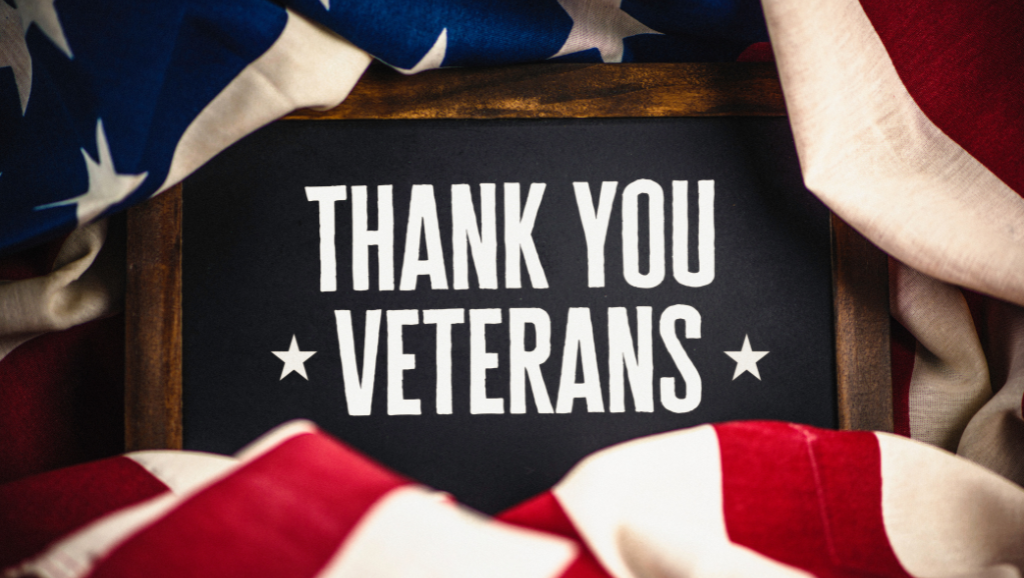Veterans, who have dedicated their lives to serving and protecting, are uniquely equipped to support survivors of human trafficking. Their resilience, strategic thinking, and strong sense of duty make them invaluable allies in the fight against trafficking. With lived experiences that have honed their empathy and commitment, veterans provide survivors not only with practical support but also with the emotional encouragement needed to heal and rebuild.
In recent years, veteran-led initiatives have emerged across the country to help trafficking survivors overcome physical, psychological, and economic barriers. By working alongside organizations like Rahab’s Daughters, veterans are making a profound difference in the lives of survivors, fostering resilience, safety, and hope. Here, we explore how veterans support survivors of trafficking and how communities can join these efforts.

The Impact of Veterans’ Support on Survivors of Human Trafficking
The trauma endured by survivors of human trafficking is multifaceted, affecting them emotionally, psychologically, and economically. Veterans, with their deep understanding of trauma and resilience, can offer support that truly resonates.
- Emotional and Psychological Support: Veterans who have navigated personal trauma often bring a compassionate understanding of survivors’ journeys. Programs where veterans mentor survivors have been shown to significantly reduce feelings of isolation and fear. The National Center on PTSD reports that shared trauma experience can lead to stronger support bonds, which are especially valuable in recovery settings. Veterans’ empathy and commitment often help survivors feel understood and supported, fostering healing and self-confidence.
- Security and Safety Training: Veterans are trained in situational awareness, conflict resolution, and personal security—skills that can be life-saving for survivors reentering public spaces. Some veterans conduct self-defense workshops or provide safety education, helping survivors gain a sense of control over their surroundings. Programs led by veterans at organizations like Veterans for Child Rescue demonstrate the positive impact of these efforts in equipping survivors with practical skills to safeguard themselves.
- Economic and Skills-Based Empowerment: Veterans understand the value of skill-building and economic independence. They mentor survivors in job training, resume building, and interview techniques, empowering them to find stable employment. Veteran-run programs like Operation SafeHouse provide survivors with guidance on career development and financial literacy, helping them regain control of their economic futures and reduce the risk of re-trafficking.
The Role of Organizations like Rahab’s Daughters
Rahab’s Daughters works with veterans to offer holistic support for survivors of trafficking. By coordinating volunteer opportunities for veterans, Rahab’s Daughters creates a powerful partnership that benefits both the veterans and the survivors they mentor. Through events, workshops, and one-on-one mentoring, veterans help Rahab’s Daughters extend their reach and deepen the impact on survivors’ lives. Veterans who volunteer with Rahab’s Daughters provide mentorship, personal security education, and career guidance, bridging the gap between survival and self-sufficiency.
How Communities and Individuals Can Support Veteran-Led Initiatives
Joining veterans in their efforts to support trafficking survivors can be incredibly impactful. Here are ways communities and individuals can contribute:
- Volunteer as a Mentor or Advocate: Community members with skills in counseling, financial planning, or job training can work alongside veterans to provide survivors with a comprehensive support network. Rahab’s Daughters frequently organizes training sessions for volunteers, equipping them with the knowledge they need to make a positive impact.
- Financial Assistance and Donations: Monetary support enables veteran-led initiatives to offer essential resources to survivors. Donations can help fund safe housing, therapy sessions, job training, and self-defense classes. Contributing financially to organizations like Rahab’s Daughters directly supports their programs for survivors.
- Raise Awareness and Advocate for Change: Share information about veteran-led support programs for survivors of human trafficking on social media or within your community. Raising awareness educates others on the critical role veterans play in combating trafficking and fosters a community-driven approach to preventing it.
- Sponsor or Host Workshops: If you’re part of an organization, consider sponsoring workshops or hosting informational sessions where veterans can share their knowledge with survivors. Self-defense classes, financial literacy workshops, and job-readiness seminars are impactful ways to empower survivors.
- Participate in Local Events Supporting Anti-Trafficking Efforts: Attend events hosted by organizations like Rahab’s Daughters to learn more and get involved. These events offer valuable insight into trafficking issues and provide a platform for community action.
Join Rahab’s Daughters in Supporting Survivors
Veterans bring invaluable skills, resilience, and empathy to their work with trafficking survivors. Their commitment to service extends beyond military duty, transforming lives and building pathways for healing. At Rahab’s Daughters, we believe that everyone can be part of this important mission. Whether by volunteering, donating, or simply raising awareness, your contribution has a lasting impact.
Join Rahab’s Daughters in supporting veterans who work to empower survivors of human trafficking. Together, we can create a compassionate, resilient community that uplifts and protects. Every act of support strengthens the fight against trafficking and fosters a safer, brighter future for all. Together, we can rescue, rehabilitate, and empower those impacted by trafficking. Join us today in making a difference – let’s stand strong and create a brighter future for all.
